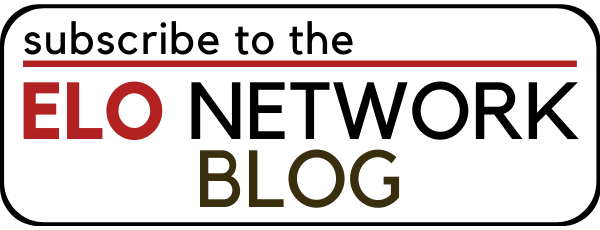There is no better person I can think of to write a book on mistakes than John Pearson. That doesn’t sound right. Let me rephrase that. John Pearson is an experienced leader and management consultant, recently somewhat retired, who over a long career has seen many mistakes and has no qualms admitting his own.
John Pearson of San Clemente, CA, was a nonprofit board governance and management consultant for 15 years and previously served more than 30 years as a nonprofit ministry CEO with organizations including the Christian Camp and Conference Association, Willow Creek Association, and Christian Management Association (now Christian Leadership Alliance).
His most recent book (written with his son, Jason) is titled, Mastering Mistake Making: My 25 Memorable Mistakes—And What I Learned (San Clemente, CA: Pearpod Media, 2021). I suspect that this is likely Volume 1 of a Chicken Soup-like series.
The book is a great retrospective on Pearson’s career and the many interesting people he has studied worked with and met, such as Peter Drucker, James Dobson, Bill Bright and Francis Schaeffer.
His self-deprecating wit is resplendent throughout the book. He has the self-awareness and confidence to admit when he messed up and has offered insightful lessons to help others avoid the same Chicago-sized potholes.
Not surprisingly, I am included in this book on mistakes. John and I worked on a project a number of years ago that went awry. It was a mistaken concept for an entrepreneurship conference in Phoenix, AZ. Yes, there is a reason you have never heard of it! I did complain to John that I was disappointed that I was not on the cover of a book on mistakes—it would have been a badge of honor. He admitted that this might have been a mistake.
The starting point is that we are all, of course, wary of making mistakes. We want to do things well. All actions have consequences. We are hired to do things right. We are serving and we expect to do things well. We are trained so that we don’t make mistakes. We work to correct mistakes. And so on. Yet, we are not perfect. We will, indeed, make mistakes.
So, mistakes are like tuition—it’s part of the learning process. As Pearson describes in Mistake #1: “Don’t make mistakes!” has been drummed into our DNA since childhood. For many years, I was too careful and avoided risks. Later, as I read the mistake-making literature, I understood the value of mistake-making literature, I understood the values of taking calculated risks—and that failure is not final.” [14] Pearson cites many great books and resources that recount learning from the mistakes of well-known personalities.
More specifically, in the entrepreneurial context, mistakes are a way of life. Entrepreneurs are innovators—they are doing things that are unique, different and haven’t been tried before. When venturing into new territory it is inevitable that mistakes will happen. The question is more about how to process and learn from mistakes.
Pearson talks about various mistakes. With respect to reading. It’s a mistake to read too narrowly—read outside your lane. While this book is about mistakes there are many insights on the nature of reading. Pearson has reviewed over 475 leadership and management books which are then distributed in his monthly management newsletter. So, he talks about the importance of reading and how to understand books, which is very insightful.
Pearson talks about one mistake: “Talking the Coach Talk, But Not Walking It.” Pearson says he didn’t listen enough. He later learned that the best coaching question in the world is, “And what else?” Then listening intently. A key reminder: the first answer someone gives is rarely the best answer.
Pearson confesses another mistake (#14) was “ignoring My Annoying Workplace Habits.” He indicates that his mistake was that, “I did not create space for receiving feedback on my own work or behavior—which then prevented my giving authentic feedback and coaching to others.” [78]
He points out that there are bad habits that we repeat dozens of times per day—the dreaded “blind spot”—which can be cured by (a) someone pointing them out, (b) showing the negative consequences and (c) demonstrating how the behavior can be corrected.
The most annoying workplace habits that people need to break include: passing judgement; withholding information; playing favourites; not listening; and punishing the messenger. Pearson points out that the higher you go in your career, the more your problems are behavioral.
One of his mistakes (#17) was “Failing to Leverage my Clients’ Strengths.” He describes the mistake as follows: “I failed to focus on the God-given strengths of my co-workers, my board members, and my clients.” [94] How to compensate? A good insight: “While the best leaders are not well-rounded, the best teams are.” [94]
One other mistake (#24) was saying “Yes” too often. We all know that saying yes too often leads to overcommitment, lack of focus, and often, disgruntlement! Pearson describes the mistake: “Sometimes…ego and over-confidence in my abilities coaxed me into saying “yes” to opportunities and client projects—when I should have said ‘no.’”
Pearson refers to the insights of Andy Stanley, the author of over 20 books and the founder of Atlanta-based North Point Ministries. Stanley offers a practical question to ask which helps us decide upon our focus: “In light of my past experience, my current circumstances, and my future hopes and dreams, what is the wise thing for me to do?” [130]
In short, this book is a great reminder that we all make mistakes and that the key is to reflect on all our actions, including our mistakes, and sort out what we can learn from the process. This takes a trip to the buffet of humble pies, self-awareness, a willingness to change and to accept feedback, and it is part of the leading process.
We should all aspire to master the craft of making mistakes. The question is not whether we are making mistakes—but rather do we recognize and learn from them?

